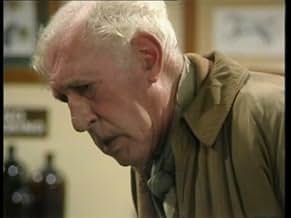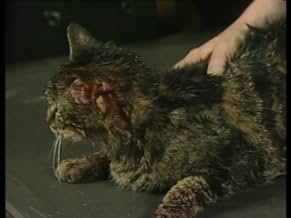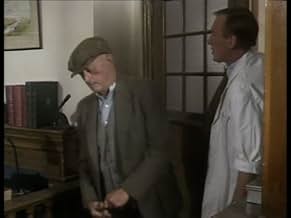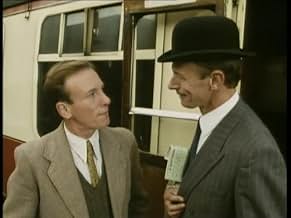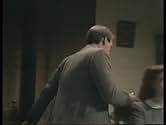Les mésaventures du personnel d'un bureau vétérinaire du Yorkshire des années 1930.Les mésaventures du personnel d'un bureau vétérinaire du Yorkshire des années 1930.Les mésaventures du personnel d'un bureau vétérinaire du Yorkshire des années 1930.
- Nommé pour 1 prix Primetime Emmy
- 1 victoire et 3 nominations au total
Parcourir les épisodes
Avis en vedette
I saw this TV series during a 3-year stay in the UK (father's work), when it was first aired. I was going through kindergarten/primary school at the time. Absolutely loved it! That may be more of a personal memory and less of a 'review', but the simple fact that this is one of the few things I remember so well must account for something...
The starting tune never fails to bring a smile on my face. Good acting from the main character, James Herriot. I saw an episode not too long ago and I must say, the series hasn't lost it charm after all these years. It's seem almost timeless, which in my opinion is one of the best compliments possible. The scenery in the series is breathtakingly beautiful and the stories are charming, entertaining and very 'feelgood'. Good memories!
The starting tune never fails to bring a smile on my face. Good acting from the main character, James Herriot. I saw an episode not too long ago and I must say, the series hasn't lost it charm after all these years. It's seem almost timeless, which in my opinion is one of the best compliments possible. The scenery in the series is breathtakingly beautiful and the stories are charming, entertaining and very 'feelgood'. Good memories!
10gooelf50
Such a fine series comes along only once or twice in a viewer's lifetime. The actors are second to none. Robert Hardy plays Siegfried Farnon in a wonderfully realistic manner. Here's a man who ranges from a soft natured rural country vetrinarian who cares passionately for every animal he treats, to a raving tyrant who rules his younger brother Tristan with an iron fist. His performances show acting ability that we seldom see in North American productions.
Christopher Timothy routinely delivers up fine performances as James Harriot, the younger partner in the vetrinary practice. Most of the episodes deal with his experiences and he manages to take somewhat mundane situations and make them exciting for the viewers. Over the life of the series we witness his evolution from an inexperienced young vetrinarian to a competent and practiced professional. Along the way we see him become a partner in the practice and woo and win Helen who eventually becomes his wife and the mother of his children.
Comic relief is always forthcoming from Tristan, played to perfection by Peter Davison. It's often hard to accept that he is Siegfreid's brother as the two men are absolute opposites; Siegfried being a serious, studious gentlemen with all the hallmarks of a finely bred British gentleman while Tristan is a boozing, carousing womanizer. The chemistry amongst these three actors makes the series one of the finest ever televised. The production itself is without equal. Scenes are shot on location with the actors participating directly in the action. It's not unusual to see Siegfried or James shoving their hands inside of a living beast to perform some medical process, or wallowing through a muddy barnyard.
A fine and highly realistic series on mid century vetrinarians; certainly the best I've ever seen.
Christopher Timothy routinely delivers up fine performances as James Harriot, the younger partner in the vetrinary practice. Most of the episodes deal with his experiences and he manages to take somewhat mundane situations and make them exciting for the viewers. Over the life of the series we witness his evolution from an inexperienced young vetrinarian to a competent and practiced professional. Along the way we see him become a partner in the practice and woo and win Helen who eventually becomes his wife and the mother of his children.
Comic relief is always forthcoming from Tristan, played to perfection by Peter Davison. It's often hard to accept that he is Siegfreid's brother as the two men are absolute opposites; Siegfried being a serious, studious gentlemen with all the hallmarks of a finely bred British gentleman while Tristan is a boozing, carousing womanizer. The chemistry amongst these three actors makes the series one of the finest ever televised. The production itself is without equal. Scenes are shot on location with the actors participating directly in the action. It's not unusual to see Siegfried or James shoving their hands inside of a living beast to perform some medical process, or wallowing through a muddy barnyard.
A fine and highly realistic series on mid century vetrinarians; certainly the best I've ever seen.
The life and times of Yorkshire Dales veterinary practise in the years leading up to WWII. Based on the million selling James Herriot autobiographies.
James Herriot (real name Alfred White) came to Yorkshire as a young vet looking for his first job and despite being of Scottish origins made the place his own. They have even turned his old surgery (in Thirsk) in to a museum and it well worth a visit. Look it up on the internet if you are visiting the area.
There are very few books well enough written that within a few pages you are dragged inside and falling in love with the characters. I was around when they still were being written and when a new one came out you could be sure I'd be first in line at the bookshop. I'd even set the alarm clock an hour early so I could find more time for them.
(I doubt I'll ever be as excited as that over a book again!)
The fact that the main man carried on long after becoming a millionaire author showed that he was a man of dedication and integrity. Today there is a shortage of farm vets in that part of the world. The life is no easier now than it was then.
The series got together a dream cast and the male leads are fabulous and very true to the pages of the book - while the women try and make the best of their tea making, love-interest and showing-people-in roles.
Many of the pets on the show were treated for free in exchange for them being used on the show. It doesn't get any more "method" than having your hand up the backside of a cow for real! In one episode a foreign female vet seems poised to get involved in the practise -- but she only seems to upset the happy home and soon leaves. Also to be noted is that pages of the book involved bad people and youngsters who turned to crime. Even a suicide. You won't find them here. Nevertheless some of the farmers are less than pleasant people -- with the vets prepared to take them on as clients despite their character and (in real life) propensity for not paying their bills.
The central problem with this series is that sometimes you feel you are born in the wrong age. Oh for the time when country cottages were within the budget of a working man and everyone had time to stop and chat over tea.
Yes, it is a bit misty eyed and cute (although not all the animals are), but there are plenty of morals and lessons-in-life too.
James Herriot (real name Alfred White) came to Yorkshire as a young vet looking for his first job and despite being of Scottish origins made the place his own. They have even turned his old surgery (in Thirsk) in to a museum and it well worth a visit. Look it up on the internet if you are visiting the area.
There are very few books well enough written that within a few pages you are dragged inside and falling in love with the characters. I was around when they still were being written and when a new one came out you could be sure I'd be first in line at the bookshop. I'd even set the alarm clock an hour early so I could find more time for them.
(I doubt I'll ever be as excited as that over a book again!)
The fact that the main man carried on long after becoming a millionaire author showed that he was a man of dedication and integrity. Today there is a shortage of farm vets in that part of the world. The life is no easier now than it was then.
The series got together a dream cast and the male leads are fabulous and very true to the pages of the book - while the women try and make the best of their tea making, love-interest and showing-people-in roles.
Many of the pets on the show were treated for free in exchange for them being used on the show. It doesn't get any more "method" than having your hand up the backside of a cow for real! In one episode a foreign female vet seems poised to get involved in the practise -- but she only seems to upset the happy home and soon leaves. Also to be noted is that pages of the book involved bad people and youngsters who turned to crime. Even a suicide. You won't find them here. Nevertheless some of the farmers are less than pleasant people -- with the vets prepared to take them on as clients despite their character and (in real life) propensity for not paying their bills.
The central problem with this series is that sometimes you feel you are born in the wrong age. Oh for the time when country cottages were within the budget of a working man and everyone had time to stop and chat over tea.
Yes, it is a bit misty eyed and cute (although not all the animals are), but there are plenty of morals and lessons-in-life too.
The original series of 41 episodes was a beautifully accurate version of the Herriott books. Superb acting is expected in a British production, and this is no exception, as the actors do an amazing job of capturing the essence of the even the minor characters. The vets, Christopher Timothy, Robert Hardy and Peter Davison are especially true, as is Carol Drinkwater (most superior to her replacement as Helen). The series also captures the essence of the Yorkshire Dales: the lovely green hillsides, wide vistas and individualistic spirit. Visiting that area is like stepping into the Herriott stories, as we discovered in 1982 and many subsequent visits. And having a pint with the cast between shooting on location showed us how authentic the series is. Many people don't realize that these are not `warm, fuzzy' animal stories. Each episode has a moral point to make and makes it subtly, through action not speeches. The series is also inspirational, for it is, implicitly, the story of the birth of scientific veterinary medicine.
This film (and indeed series) is set in 1930's Britain, not the 1940's as stated elsewhere in this site, as Britain was involved in that fracas called the Second World War from 1939 and both Farnon and Herriot joined up with the Royal Air Force.... The books did carry on for the post war period but the film is firmly in the 30's! The attention to detail - even down to the advertisements by the roadside, is extraordinary, whilst the realisation of pre-war Britain, with its optimism, rugged individuality and, determination in sometimes very difficult circumstances is heartwarming. As a small piece of trivia, Christopher Timothy, who plays James Herriot has a limp in the later series, as he (for real) broke his leg during the filming of series two. Hardy, who played S. Farnon, is now even better known for his role as the Minister For Magic, in the Harry Potter films!
Le saviez-vous
- AnecdotesAlf Wight (the real James Herriot) initially stipulated that all the incidents in the TV series had to be closely based on those in his books. By the end of Season 3, all of Wight's books had been televised, and it was thought that the series would have to end. However producer Bill Sellars persuaded Wight to let the scriptwriters devise new stories as long as the scripts were approved by him and remained faithful to the spirit of his books.
- Citations
Mrs. Pumphrey: [orders Hodgekin to throw rings for her Pekinese, Tricki Woo. He throws one feebly] Oh, a little further than *that*, Hodgekin!
Mrs. Pumphrey: [he throws it miles] Not into the rose bed, Hodgekin! We wouldn't want Tricki to get pricky-paw!
Hodgekin: [muttered] Who wouldn't?
Mrs. Pumphrey: *What* was that? What was that, Hodgekin?
- ConnexionsFeatured in Comic Relief: The Invasion of the Comic Tomatoes (1993)
Meilleurs choix
Connectez-vous pour évaluer et surveiller les recommandations personnalisées
- How many seasons does All Creatures Great & Small have?Propulsé par Alexa
- Since Siegfried and Tristan are brothers . just who is "Mother"?
- Why was there a gap in the transmission of the first series?
Détails
- Date de sortie
- Pays d’origine
- Langue
- Aussi connu sous le nom de
- Der Doktor und das liebe Vieh
- Lieux de tournage
- Langthwaite, Richmond, North Yorkshire, Angleterre, Royaume-Uni(hump-backed bridge which James and Siegfried drive over in opening titles of first two series)
- sociétés de production
- Consultez plus de crédits d'entreprise sur IMDbPro
Contribuer à cette page
Suggérer une modification ou ajouter du contenu manquant

Lacune principale
By what name was All Creatures Great & Small (1978) officially released in India in Hindi?
Répondre

